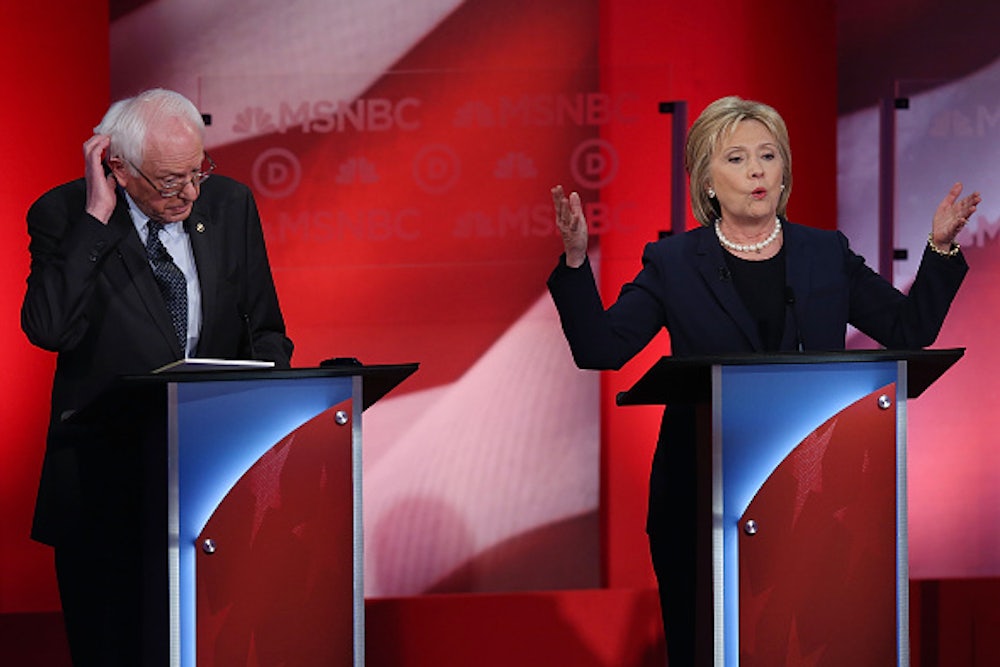“Experience” versus “judgement” is how Sanders typically characterizes the distinction between himself and Clinton on foreign policy. It’s a good way of bringing up the Iraq War, which he opposed and she supported, but it has the unfortunate effect of reducing the meaningful divide separating their worldviews into little more than a catchphrase.
In Thursday’s MSNBC debate, we got a better understanding of what that distinction consists of. Asked to rank global “threats”—North Korea, Iran, and Russia—according to their implied threatiness, Sanders pointed to North Korea, and the instability of an isolated nuclear nation. Clinton named Russia, which she depicted as aggressive and subverting U.S. interests. Sanders, in other words, is primarily concerned with proliferation and the possibility of war, while Clinton is preoccupied with a more traditional understanding of American hegemony, and the great power rivalries it implies.
That contrast, in turn, helps illuminate Clinton’s response to Sanders’s earlier use of the experience/judgement talking point. “A vote in 2002 is not a plan to defeat ISIS,” she said, dismissing his criticism of her Iraq War vote. “We have to look at the threats that we face right now.” But when Sanders brings up the vote, he is not simply scoring political points, but asking voters to reckon with the deeper implications of U.S. will to power. It would be nice if he could find a more compelling way of conveying that.
